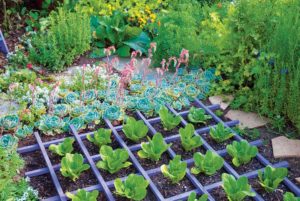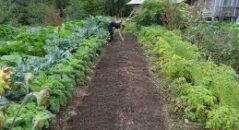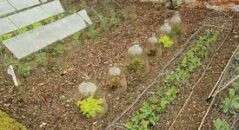Organic gardening is a procedure that has actually become a necessity for healthy and nutritious food. Having organic food on a regular basis helps people and their future generations as well. This is one of the strongest reasons why there are a large number of people engaging in organic horticulture. It is good to practice organic gardening procedures but it is important that you have a clear idea about the basics of organic gardening. Sadly, there are many people who do not understand the basics of organic gardening. For such people, there is help provided below.
What is the Basic Rule in Organic Gardening?
The basic rule in organic gardening is planting and growing crops without the use of chemical pesticides, fertilizers and various other synthetic products. Thus, it can be said that organic gardening is 100% natural. It is chemical-free and therefore it does not harm and kill people. Think simple. This form of gardening is quite easy but it is the people involved in this procedure that make it very complicated. The basics of organic gardening include:

Healthy Soil
Having healthy and fertile soil is very important for organic gardening. Healthy soil is soil packed with nitrogen and other essential nutrients needed by plants. A proper location of air and sunlight results in healthy growth. The most perfect variety of soil used for organic gardening is clay soil in comparison to garden soil or normal sand. Clay soil is rich in its content of nutrients and works best in retaining water for the replenishment of plants.
Organic Matters
Organic matters tend to be of great importance in organic gardening. This is because organic matters offer soil the required nutrients. The nutrients provided by organic matters are beneficial for the proper growth of plants. Without proper nutrients the plants might die and the same goes for water as well. So, what are organic matters exactly? These can be anything from animal waste or decay matter that is mixed with soil. Dried leaves and grass clippings also fall in the category of organic matters. Scraps from the kitchen like vegetable stalks, fish heads and fruit peels also serve as best organic matters. These organic matters can easily be added on top of the plants for helping the plants in absorbing nutrients very well.
Maintaining the Garden and Controlling Diseases and Pests
The main objective of organic gardening is maintaining the garden without using chemical fertilizers and synthetic products. There are many individuals who make the blunder of using chemically-treated products and boast of possessing an organic garden. The owners of organic gardens need to familiarize themselves with the organic knowledge and methods of dealing with and preventing pests in the garden.
Understanding the Climate
It is necessary for you to know what fruits or vegetables you can easily plant during a particular season. You must always plant trees that go by the season otherwise having an organic garden will be of no use for you.
Conclusion
It is very important for you to understand the four major basics of organic gardening in order to get fruitful returns of owning an organic garden.




